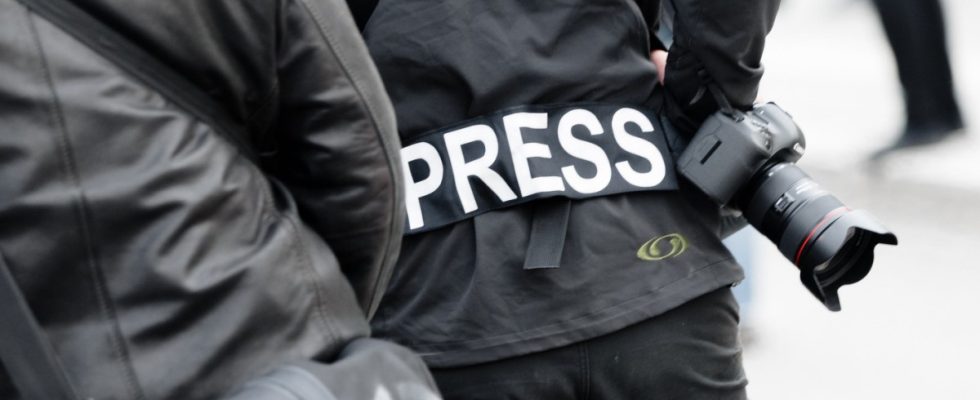Germany is no longer in the top 20 in the global press freedom rankings of the organization Reporters Without Borders. In the group’s current list, Germany occupies only 21st place this year, after 16 in the previous year and 13 two years ago. This Wednesday is International Press Freedom Day, and Reporters Without Borders traditionally publishes its latest surveys on this day.
The reason given for Germany’s decline is that other countries such as the Netherlands, the Czech Republic, Canada, Latvia and Slovakia have passed by. East Timor and Samoa also overtook Germany, whose score fell by just 0.13 to 81.91 out of a possible 100 points.
The non-governmental organization (NGO) justifies the worsening of the German rating with increasing violence against journalists in Germany. Reporters Without Borders said 103 physical attacks were the highest since records began in 2015. 80 attacks were recorded in the previous year and 65 in the previous year.
87 of the cases from the past year 2022 were committed in conspiracy ideological, anti-Semitic and extreme right-wing contexts. Meetings remained the most dangerous places for media workers in Germany. The organization counted a particularly large number of attacks in the eastern German states of Saxony (24), Berlin (17) and Thuringia (13).
A nationwide problem, however, is impunity, criticized Reporters Without Borders. Many of the journalists and reporters affected expressed dissatisfaction with the work of the police and judiciary. Effective protection is urgently needed.
Federal Minister of Justice Marco Buschmann (FDP) is concerned about the development. “Unfortunately, we also see in Germany that attempts are being made to hinder the work of journalists,” he said. “They are supposed to be intimidated by threats and violent attacks. We must not allow that. Freedom of the press is one of the greatest assets in a liberal constitutional state. It must be our aim to promote it; it is our duty to protect it.”
In the past year, more journalists have been in prison than ever before since Reporters Without Borders began documenting these figures. “That alarms us very much,” said the Liberal. “Because freedom of the press is an elementary prerequisite for a free society. Anyone who restricts freedom of the press also restricts other freedoms: the freedom to obtain information, to discuss, to form one’s own opinion.”
Ireland is catching up this year, for interesting reasons
This year’s ranking lists 31 countries in the worst category, ‘very serious’, and 42 in the ‘difficult’ category. In 55 countries there are “identifiable problems” and in 52 the situation is “good” or “satisfactory” – including Germany. Similar to the previous year, the working conditions for media workers are problematic in about 70 percent of the countries.
At the bottom of the 180-country ranking list are Vietnam, China and, again, North Korea at the bottom. Russia comes in 164th, Ukraine improves from 106th to 79th place. As in the previous year, Greece comes in at 107th place, the worst in the EU-wide comparison. Last year it was revealed that at least 13 media workers in the country were being monitored by the Secret Service using the Predator spyware as well as conventional means. At the top of the list for the seventh time in a row is Norway, followed by Ireland, which has relegated Denmark and Sweden after several years. Pluralism in the media market has recently increased in Ireland, and a new defamation law protects media professionals from abusive lawsuits.

